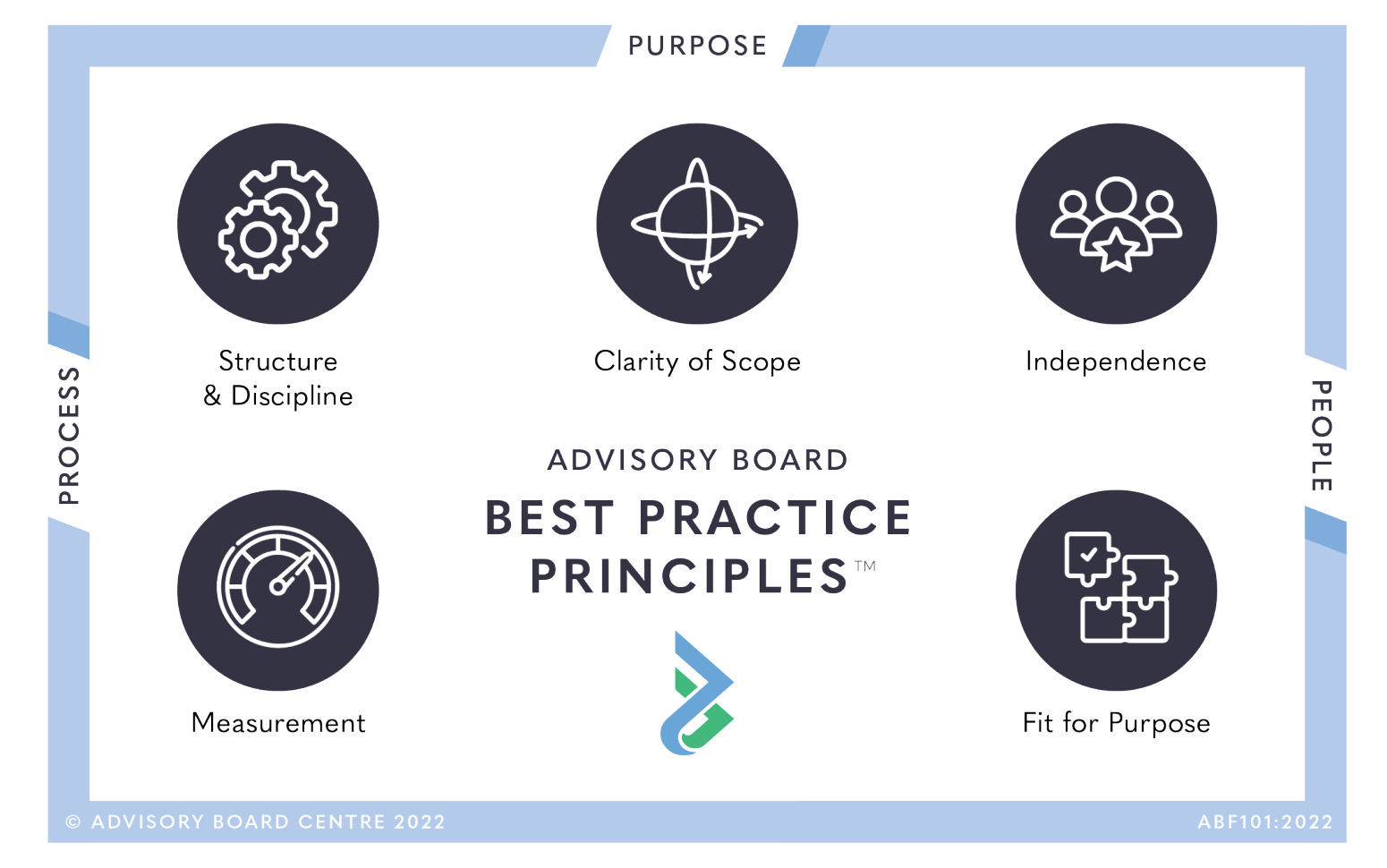
Fit For Purpose | Advisory Board Best Practice Principles
Fundamentals
Published 05 September 2020
The ABF101 Advisory Board Best Practice Framework™ has been carefully developed to respect and support the balance required between purpose, people, and process to create a strong foundation for advisor engagement.
The ABF101 Framework is based on five key principles – clarity of scope, independence and fit-for-purpose, measurement, structure and discipline.
Let’s explore the “Fit for Purpose” principle.
Fit for Purpose Advisory Boards
Advisory boards are inherently flexible. The scope and priorities of an advisory board are as unique as the organisation it serves. Careful consideration is required from organisations and advisors to evaluate whether the advisory board members are “fit for purpose”.
Within the ABF101 Framework, Independence and Fit for Purpose principles underpin the Advisory Board’s PEOPLE section.
Fit for Purpose: The advisory board members are profiled and selected by the organisation to fulfil the scope and meet the objectives in terms of expertise, diversity, and personal attributes.
An advisory board is an effective vehicle for organisations to access a wider view of the market. When selecting advisory board members, organisations are seeking more than industry knowledge as this is often present already within the business. There is a significant benefit for advisors who are leaders in their field with a broader view of sector dynamics than the business currently holds.
The ABF101 Framework provides a balanced approach to advisory board structures. It recognises the balance necessary for defining a purpose that is unique to the organisation, applying good governance of people and processes. It enables an organisation to effectively draw on the skills and experience of people in a way that supplements skills within an organisation.
Importance of Fit for Purpose for Organisations
- Purposeful and targeted formation of the advisory board
- Targeted and select specialist knowledge, skills, perspectives, and connections
- An advisory board that aligns with the organisation’s desired culture
Importance of Fit for Purpose for AdvisorY BOARD MEMBERS
- Clarity in what the organisation needs and where the member adds value to the advisory board
- Goal orientation for purposeful conversations
- Maximise impact of advice
- Personal responsibility of members to maintain currency of knowledge
Considerations for Application
- Organisational focus within the charter including advisory board objectives and priorities
- Scoping of member profiles to address the organisational priorities
- Due diligence in advisory board member selection
- Selection of members who can interact and contribute positively in a group setting
- Goal establishment for the advisory board to support the organisational objectives and priorities within a period of time
- The period of time of the advisory board and member appointment is subject to ongoing review
Updated: June 2024, based on the ABF101 Advisory Board Best Practice Framework Third Edition.







